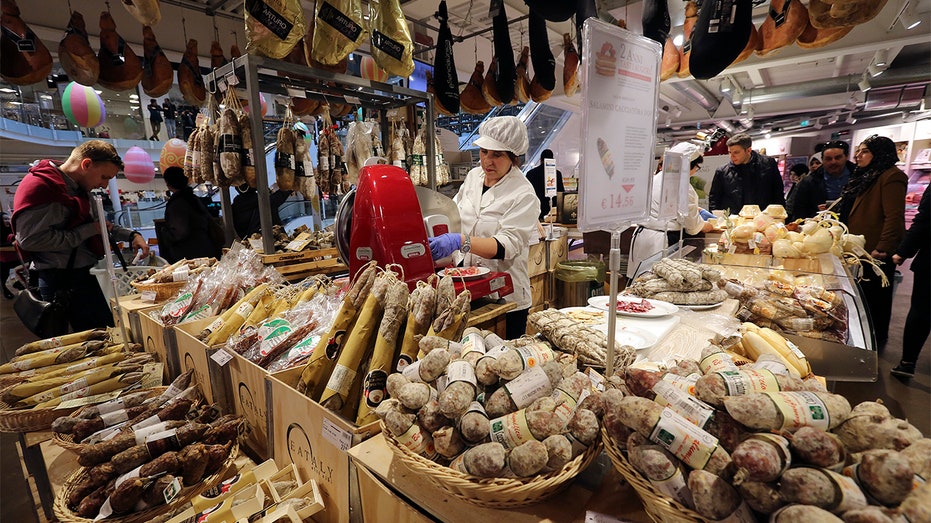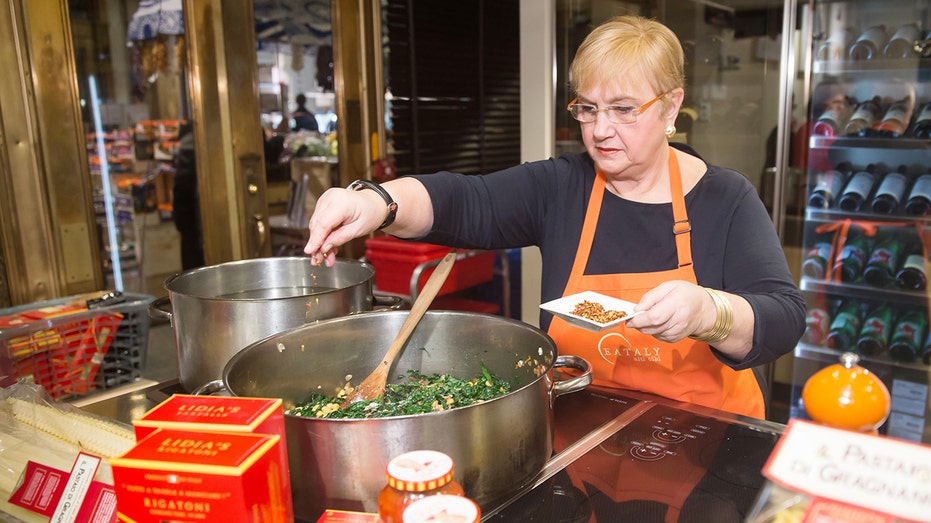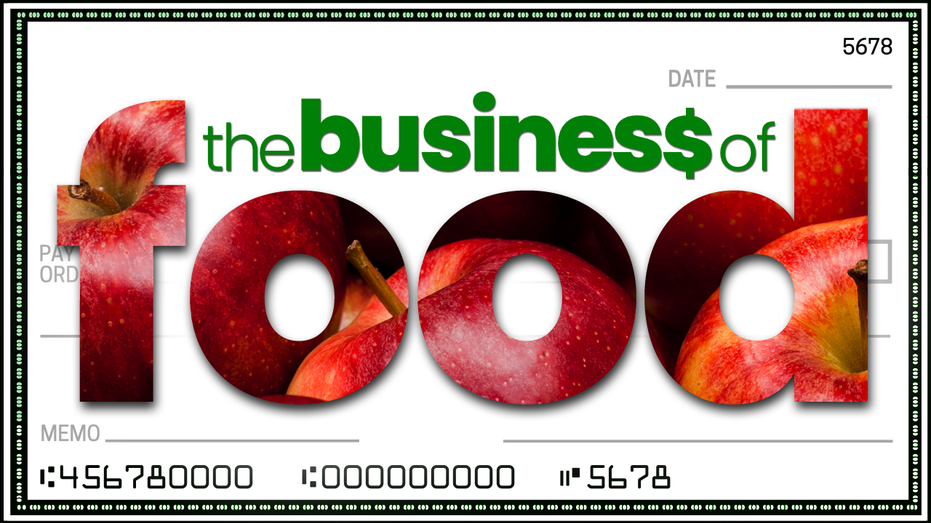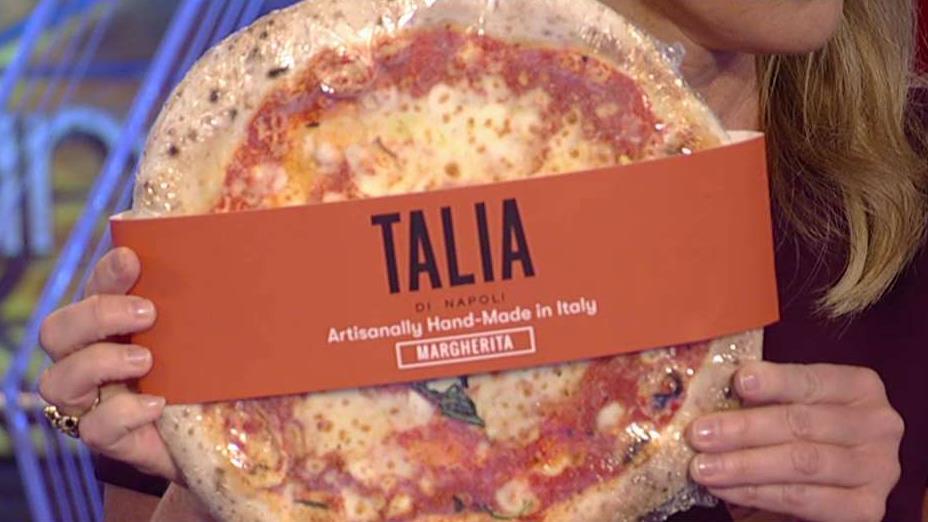Eataly opening Italian food market in Silicon Valley
The Italian market will open its second West Coast location, joining 40 other emporiums worldwide
More Americans will get a taste of Eataly.
The Italian-bred food emporium that comprises a café, sandwich counter, bakery, beer garden and restaurants that feature butcher and seafood counters and an assortment of fresh pasta, cheeses, truffles and olive oil, is opening in Silicon Valley, FOX Business has exclusively learned.
Eataly will debut its 51,000-square foot store at Westfield Valley Fair mall in San José, California, as part of the mall's $1.1 billion transformation in 2021. The three-story Eataly Silicon Valley will also sell wine from Northern California producers.

A staff member works at the cold cuts and salami corner at the Eataly food market store in the former Smeraldo teather downtown Milan, Italy, March 20, 2016. REUTERS/Stefano Rellandini
"We see a great opportunity for high-quality Italian food in one of the wealthiest regions in the world," Nicola Farinetti, chief executive officer of Eataly, who owns Eataly USA in partnership with chef Lidia Bastianich and her son, restaurateur and winemaker Joe Bastianich, told FOX Business. Eataly announced in August it purchased Mario Batali's minority stake in the Italian market following sexual assault allegations, severing ties with the embattled chef.
The marketplace has 40 stores across the U.S. and internationally with shops in New York, Chicago, Boston, Las Vegas, Rome and Toronto. And it plans to open in London and Brussels next year. Even though the Italian smorgasbord is opening in the country's tech hub, which is home to delivery giants like DoorDash, Caviar and Uber, retail will still the main focus. Farinetti said in-store sales comprise as much as 70 percent of Eataly's revenue at some locations.
| Ticker | Security | Last | Change | Change % |
|---|---|---|---|---|
| UBER | UBER TECHNOLOGIES INC. | 72.94 | +0.17 | +0.23% |
"Eataly is like a theater, we say, 'if we don't put on a show every day, people are not going to buy the tickets, they're not going to come,'" Farinetti said of the company's focus on cooking, dining and in-store tasting experiences sprinkled throughout the store. "When you look at our store, every day we're doing tastings with producers and vendors, farmers are coming into the store telling stories about their products."

Lidia Bastianich teaches her Complete Pasta Class at Eataly on January 13, 2015 in New York City. (Photo by Ben Hider/Getty Images)
The Italian marketplace, which opened its first location in 2007 in Turin, Italy, when Farinetti's father, Oscar Farinetti, transformed an old vermouth factory into Eataly, has developed an online marketplace with expansion in the U.S. The business has more than doubled in North America in the last three years, and in 2019 alone Eataly's North American locations had more than 30 million visitors. Farinetti said he's not thinking of selling his food empire anytime soon but he believes Eataly could be the first publically traded Italian food hall.
"We feel that the future of Eataly is most likely going to be going public."
"We're not focusing on it today, we have to develop a plan when we feel the market is ready," Farinetti said.
Since it opened, Eataly has expanded its food delivery options and online marketplace to compete with the likes of Amazon, Whole Foods and other specialty food retailers. The food market teamed up with San Francisco-based online food delivery service Caviar to deliver its homemade Panini sandwiches and pizzas from its Manhattan location, and its online shop features freshly butchered cuts like four 8-ounce prime black Angus steaks for $95 and 2.5-pound racks of lamb for $145.
FOOD DELIVERY FROM GHOST KITCHENS BRINGS RESTAURANT-QUALITY FOOD TO THE MASSES
With more widespread food delivery from Amazon, Fresh Direct and grocery stores nationwide, a number of Italian specialty markets have closed recently after decades in business. North Miami Beach-based Laurenzo's, a specialty market selling pasta, cheeses, wine and canned tomatoes, announced its closure in July after nearly 70 years in business. It had attracted stars like Sophia Loren, Frank Sinatra and Jack Nicholson.
Customers said other national specialty retailers like Baldacci's gourmet market, with locations in Virginia, Maryland, Philadelphia and Connecticut, priced itself out of business after closing two of its storefronts in Manhattan in 2009. It had been in business for 63 years, the New York Times reported. Before shuttering, the store discounted products like canned stuffed peppers, virgin olive oil, buffalo mozzarella and Pomodoro up to 60 percent, according to the Times. And more recently, upscale specialty grocer Dean & DeLuca, known for its fresh produce shuttered its Midtown location in New York City and Washington, D.C.’s, Georgetown neighborhood market earlier this year. The company has just two locations listed on its website in Hawaii. There were more than 30 locations of the store in 2014.
Consumers spent $10.2 billion on delivery services in 2018, up 42 percent from the year before, according to data from the management consulting company Technomic. But Farinetti said the Eataly shopper isn't buying in bulk, but more sustainably, purchasing fresh foods that can be prepared hours after purchase, or dining in the emporium's restaurants. The storefront has also carved out its live event presence by adding culinary lessons taught by chefs like Lydia, and seasonal popups like its annual winter rooftop Italian-inspired winter wonderland on the roof of its Flatiron location in Manhattan.
"What makes us unique is no one has been able to grow a business where restaurants and retail are so integrated and well balanced and that is one of the many reasons why people keep coming back," Farinetti said.

The Business of Food explores the rapidly changing $1.5 trillion food industry every Tuesday on FOX Business.




















